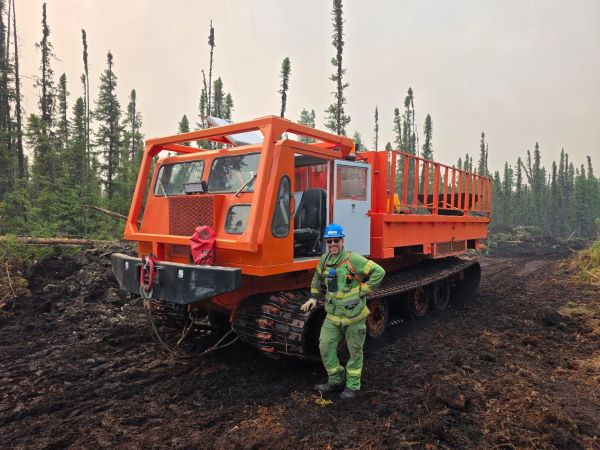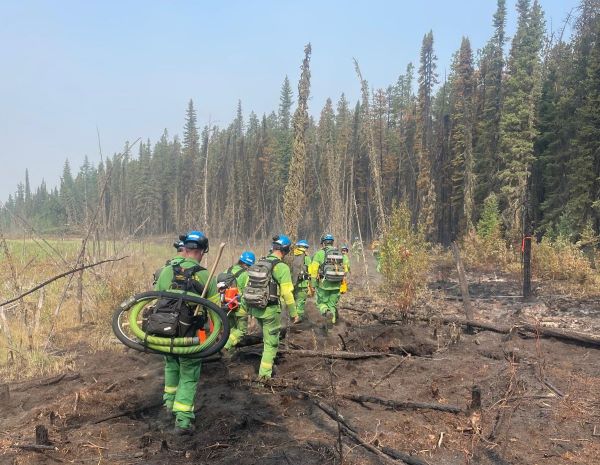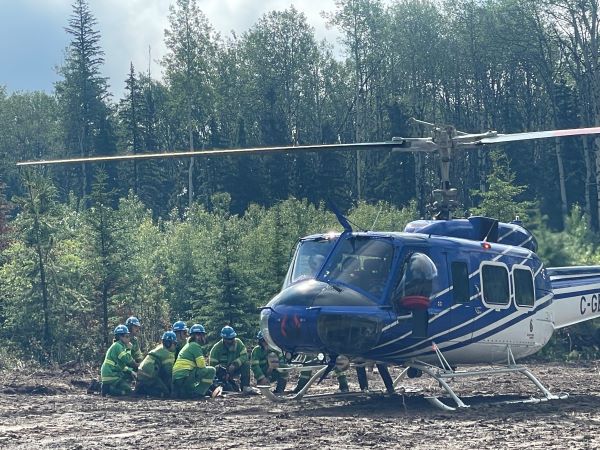Ash Spencer, a Forest Fire Management Victoria (FFMVic) firefighter spent five weeks in Canada. The experience revealed both surprising differences and strong similarities in battling bushfires at home.
While the scale of the blazes was similar to those back home, the unique Canadian environment required some adaptation.
New environment
Based in Keg River, northern Alberta, the most immediate difference for Ash was the long daylight hours.
"Where we were based, we had approximately 20 hours of daylight," said Ash.
However, it was the ‘muskeg’ ground cover—and a layer of wet clay beneath —that truly altered firefighting tactics.
Traditional "dry firefighting" was out; instead, crews relied on& using pumps, extensive canvas lines, and kicker pumps from abundant waterways.
“Vehicle access was minimal, so we depended on Hägglunds, Sherps, and helicopters to access those remote fire lines,” Ash said.

Unique challenges and shared spirit
Canadian wildlife, including bears, moose, and cougars, presented different safety concerns compared to Australia's snakes and spiders.
Community preparedness also differed, with less emphasis on fuel reduction methods like burning or mulching.
Despite this, the Canadian firefighters' "it can only get better" attitude left an impression, highlighting their remarkable resilience.
Communication had its twist: heavy radio traffic meant Australian crews used their own radios for internal comms, and non-rechargeable batteries required frequent swapping.
Impressively, internet and phone reception were available across 90% of the fire line.

Lessons learned and pride reinforced
While tools were mostly similar, the extensive use of canvas (hose lay) on the fire line in Canada stood out.
Beyond the technical aspects, the deployment offered social insights.
Canadians are incredibly friendly and grateful, and their firefighting culture, including their distinct uniforms and passion for collecting and trading patches, fostered camaraderie.
The deployment reinforced the Victorian crews’ ability to adapt and the professionalism of FFMVic firefighters.
"Everything we are trained to do in our positions here in Victoria was adequate in Canada," Ash said.
The international exchange not only helped combat devastating fires but highlighted the universal spirit of firefighting and the valuable lessons learned when working together on global challenges.
"It made me very proud and honoured to be a part of this department," said Ash.

Page last updated: 06/08/25